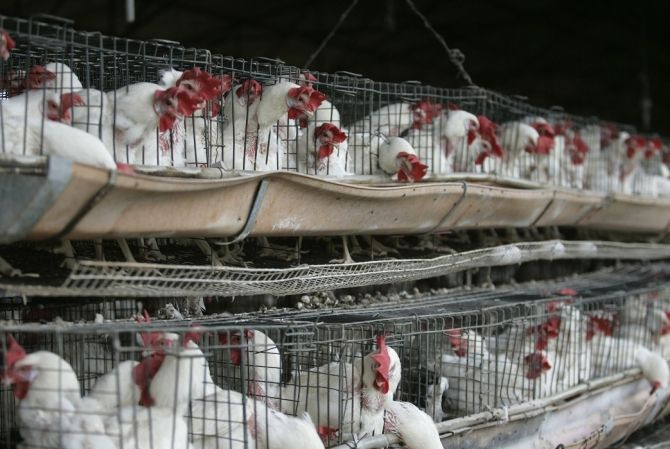Mexico Kills 2.5 Million Birds to Control H7N3 Virus

Mexican officials have killed 2.5 million birds at poultry farms in the western state of Jalisco over the past three weeks in an attempt to contain the H7N3 bird flu outbreak, the agriculture ministry said Tuesday.
The current bird flu outbreak is caused by a virus that has occasionally caused human disease in different parts of the world, according to the United Nations, but is not easily transmittable between humans.
Authorities said that they have visited 148 poultry farms, and found traces of bird flu in 31 farms and 34 farms came up with negative, and the results for the rest of the farms were pending.
The ministry said that of the 3.4 million affected poultry, "the number of birds that have been sacrificed as a control and eradication measure as of (Monday) is 2.5 million," according to a statement.
The outbreak was first detected in Jalisco state on June 20, and on July 2 the Mexican government declared a national animal health emergency to curb the aggressive epidemic.
Mexico has already imported one million vaccines from Pakistan and farming officials said that they have developed a seed-based vaccine to be delivered to four laboratories which they will use to produce over 80 million doses to start with, according to AFP.
Health authorities in Mexico have kept a close watch since the swine flu outbreak in Mexico in 2009, and the H1N1 virus which rapidly spread into a global pandemic that killed at least 17,000 people.
Figures from Mexico's National Union of Poultry Farmers (UNA) show that the country produces nearly 2.5 million tons of eggs and 1.2 million tons of feedlot poultry meat annually, and Jalisco, where the current bird flu outbreak was first detected, contributes about 55 percent of the nation's production, according to Fox News.
Emilio Gonzalez Marquez, the state governor, said that "the spreading of the virus has diminished" because the infected farms have been and are being kept in isolation.
The governor said that state and federal authorities will be able to begin repopulating poultry farms and start market recovery once the H7N3 virus is eradicated.
Published by Medicaldaily.com



























